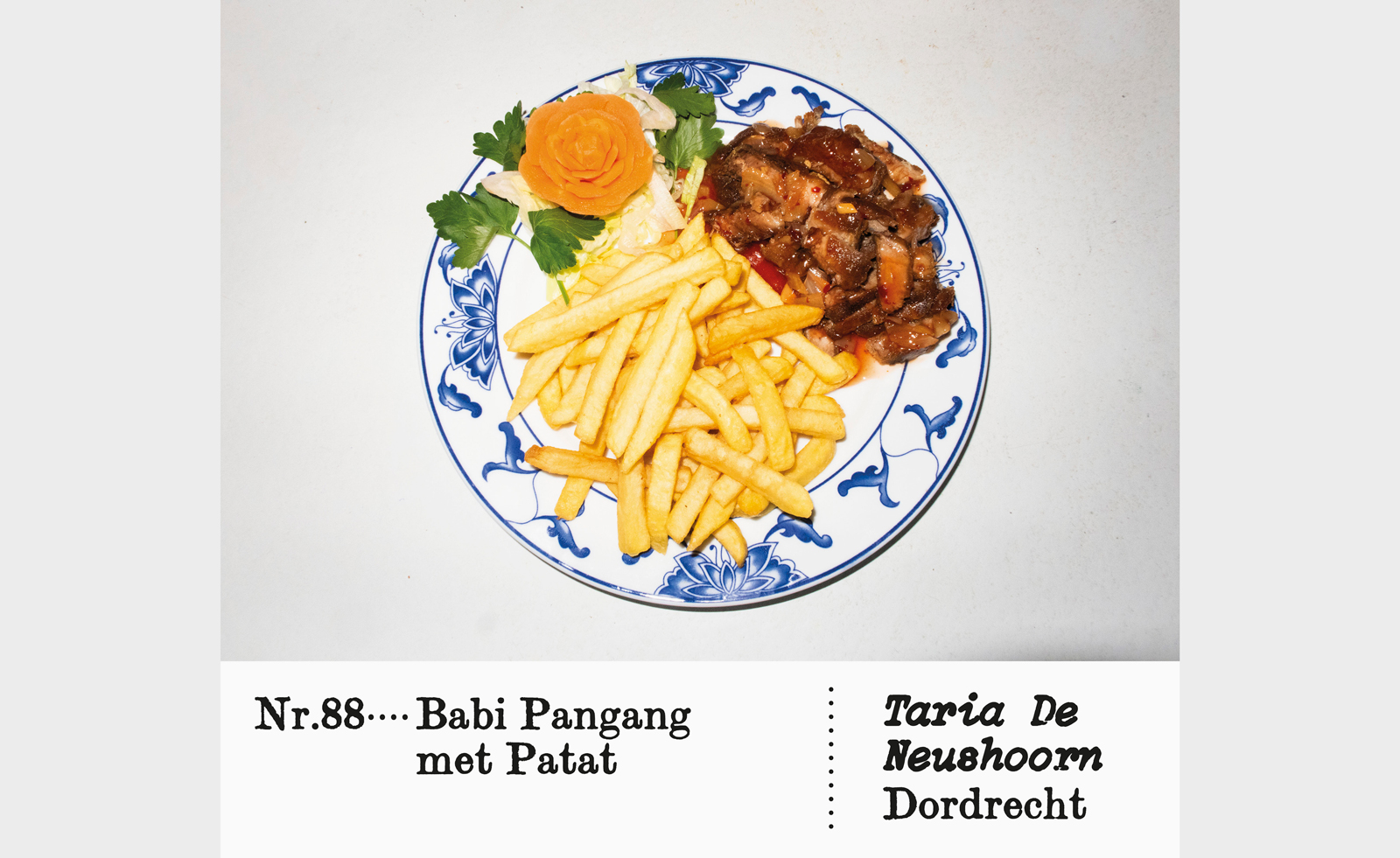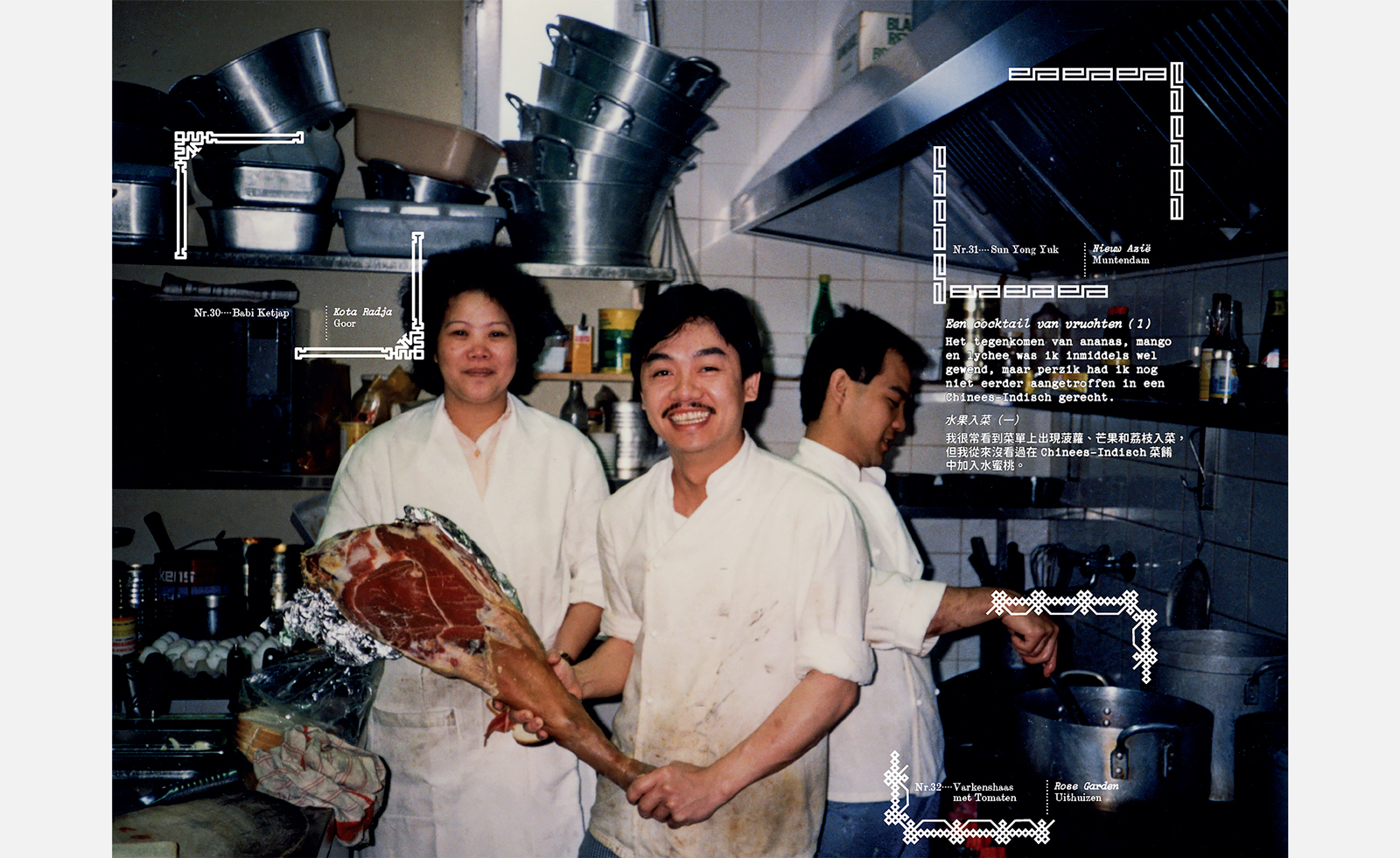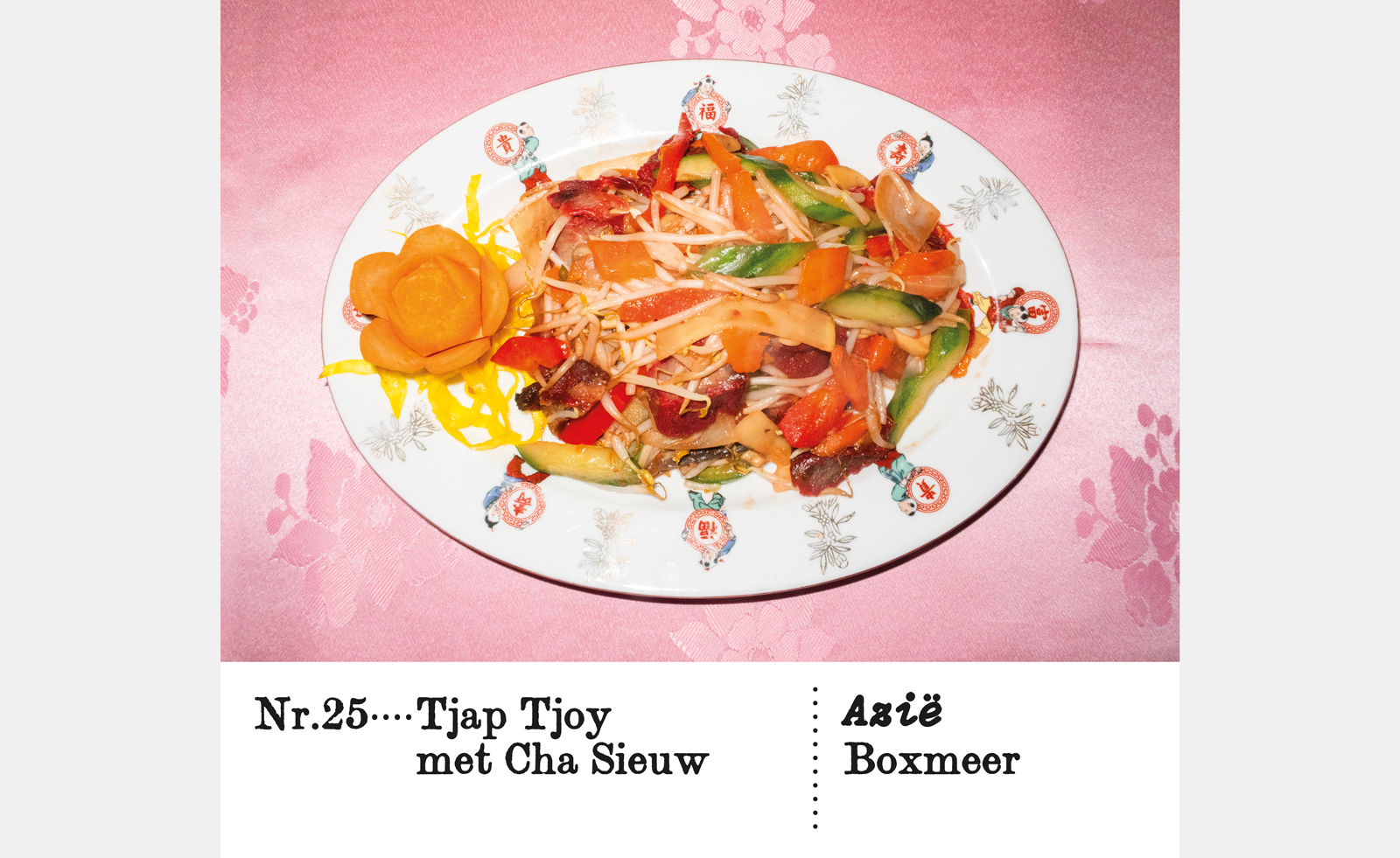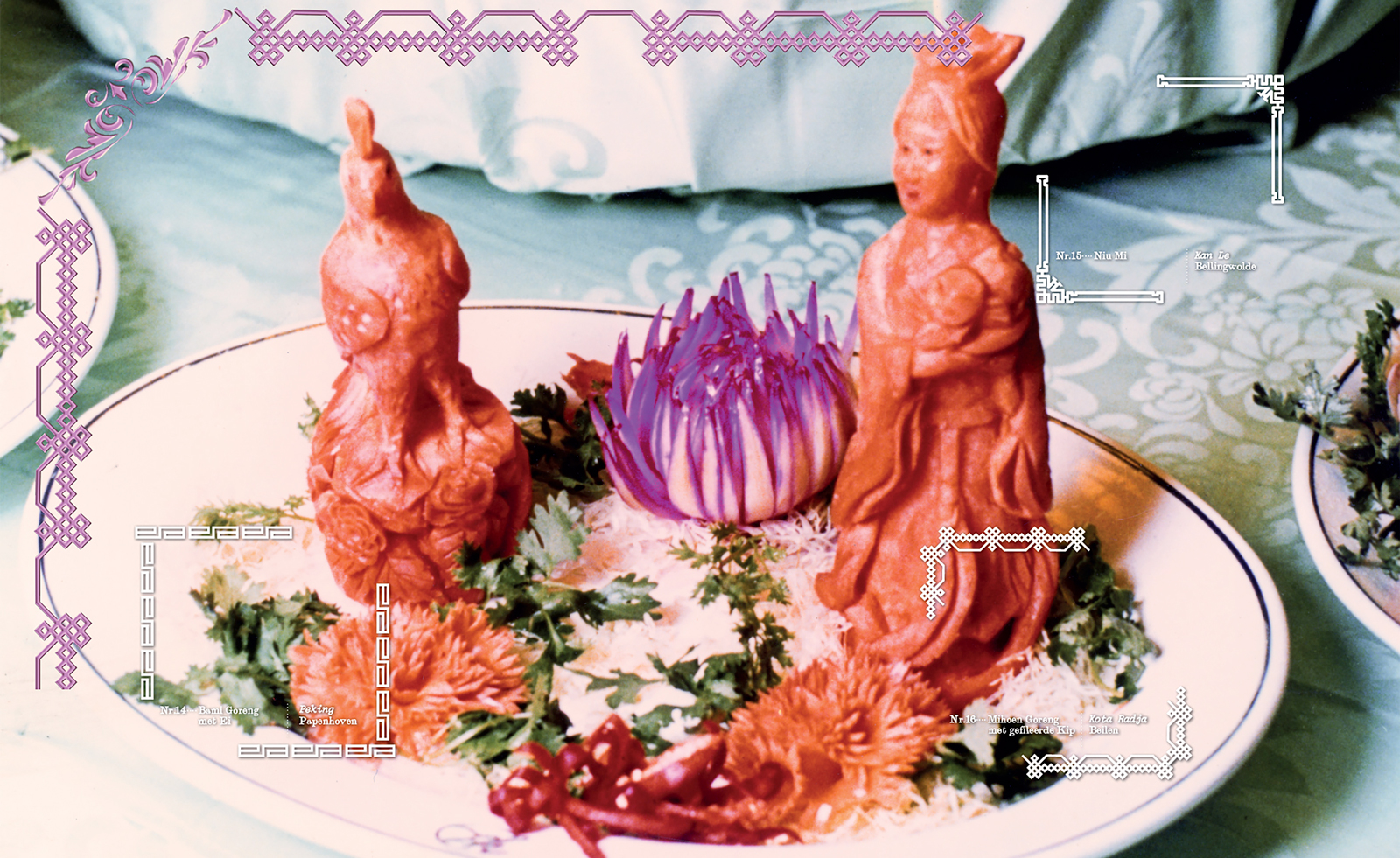Benjamin Li celebrates the Netherlands’ Chinese-Indonesian restaurants
‘In Search of Perfect Orange’ re-stages Benjamin Li's book, ‘Chinees-Indisch Restaurant Stickeralbum’ at Foam, Amsterdam

Receive our daily digest of inspiration, escapism and design stories from around the world direct to your inbox.
You are now subscribed
Your newsletter sign-up was successful
Want to add more newsletters?

Daily (Mon-Sun)
Daily Digest
Sign up for global news and reviews, a Wallpaper* take on architecture, design, art & culture, fashion & beauty, travel, tech, watches & jewellery and more.

Monthly, coming soon
The Rundown
A design-minded take on the world of style from Wallpaper* fashion features editor Jack Moss, from global runway shows to insider news and emerging trends.

Monthly, coming soon
The Design File
A closer look at the people and places shaping design, from inspiring interiors to exceptional products, in an expert edit by Wallpaper* global design director Hugo Macdonald.
‘This year it was very important to make the publication,’ says Benjamin Li, relaying the personal magnitude of Chinees-Indisch Restaurant Stickeralbum, a sticker book-cum-photo album that celebrates the artist’s decade-long project championing the unique culture of Chinese-Indonesian restaurants in the Netherlands, and was published in May 2024.
‘When Foam came to me, it was important the book was a centrepiece, that we could somehow integrate a publication as a work of art,’ he adds of his subsequent exhibition, recently opened in Amsterdam museum Foam’s 3h space. Titled ‘In Search of Perfect Orange’, it sees the book re-staged as an immersive experience, with photography spreads blown up to mammoth proportions and sticker sets similarly doubled in size and stuck behind Plexiglas.

Untitled work from the family archive
While the social mechanics of play are a vital component within Li’s practice (in addition to stickers, he’s previously produced jigsaw puzzles; a further point of pride in the new show is a large tabletop piece inspired by Halma, commonly referred to as Chinese checkers), games are principally vehicles for his research, a survey of identity, belonging, labour and cultural heritage.
Benjamin Li and Chinese-Indonesian restaurants
His interest in Chinese-Indonesian restaurants – which are a secondary product of the Netherlands’ colonial history (in the 1950s and 1960s, Chinese restaurateurs merged Indonesian flavours, already familiar to the Dutch palette, into their own dishes) – is particular. Both Li’s parents worked in the industry. A chance to explore and respond to the broader history and aesthetics of these restaurants was another early incentive for the project.
A further, third layer of the work was borne out of a racist incident that played out on national TV in 2013, involving Dutch singer Gordon Heuckeroth, then a judge on Holland’s Got Talent. ‘Literally, he was asking the Chinese contestant what he was going to sing, [calling him] “number 39 with rice”,’ recalls Li. ‘Immediately it felt wrong, but at the same time, if you take away this racist comment and ask, “What could a number 39 with rice be?’’, it's an interesting starting point for research.’ The artist consequently borrowed the line for a photo series, Nr. 39 with Rice, foregrounding a selection of Chinese dishes, each accompanied with a carrot rose garnish.

Nr.25 Tjap Tjoy met Cha Sieuw, Azië, Boxmeer, 2022
‘Most of my family members used to work in these Chinese-Indonesian restaurants,’ the artist continues. ‘I'm actually raised in a very Dutch way – language-wise, flavour-wise – but I always knew my real parents [at one time he had a Dutch foster mother], so I’ve always moved between two cultures and questioned my identity, looking for my background. I just took these questions into my art practice, then when this racist comment happened, my research took a certain flight, to this point that I’m visiting restaurants.’
The new show’s title underscores this line of inquiry, offers Li. ‘I use it a lot. It's not referring to the fruit, but the colour,’ he clarifies. ‘In the Netherlands, we have the House of Orange, that's the royal family, and “In Search of Perfect Orange” basically reflects my own search: a son of migrants living in a Western world, searching towards my position within the Dutch landscape.’
Receive our daily digest of inspiration, escapism and design stories from around the world direct to your inbox.
That his parents have since moved into Dutch cuisine echoes another component of this narrative and the shift, for younger generations, away from traditional kitchen jobs, culminating in the loss of restaurants altogether (something Li taps into with his puzzles). Moreover, his parents are core to the show, with their image depicted in archive photos, as well as on film: a video of Li’s father carving carrot roses calls attention to the practice and its significance to the artist.

Spread from Chinees-Indisch Restaurant Stickeralbum by Benjamin Li with untitled work from family archive
Returning to his use of stickers, Li describes being a keen collector of Panini’s classic football sets as a kid, an element of which he hoped to incorporate into the book and exhibition. ‘Stickers are fun, but by making a sticker album you’re also making people more aware of the content they are dealing with, because they have to flip through the book, so there’s an interactive element. And through trading the stickers, maybe also you can actually meet people,’ he suggests. This potential for congregation and discussion is something he’d like to examine further with the project he says, reflecting on the broad audience he observed earlier with the book, which was fully crowdfunded. ‘I saw the sponsors came from different angles, and that was super interesting,’ he notes, recounting the enthusiasm of the Dutch and Chinese communities, as well as people from the culinary and art worlds. ‘So I hope that my work can function as a sort of a bridge, where we speak to each other.’
‘In Search of Perfect Orange’ is open at Foam 3h through 1 December 2024
Zoe Whitfield is a London-based writer whose work spans contemporary culture, fashion, art and photography. She has written extensively for international titles including Interview, AnOther, i-D, Dazed and CNN Style, among others.